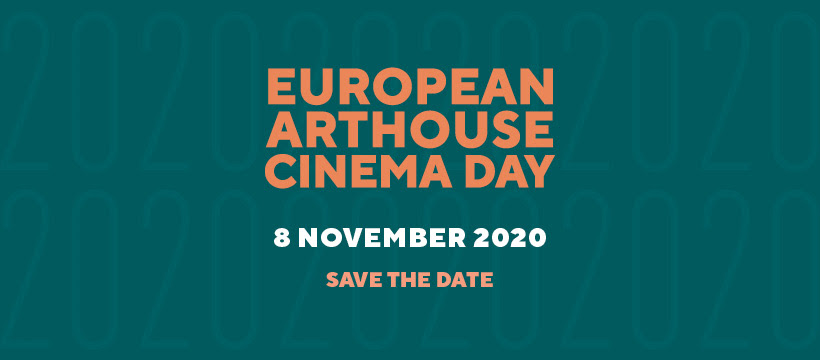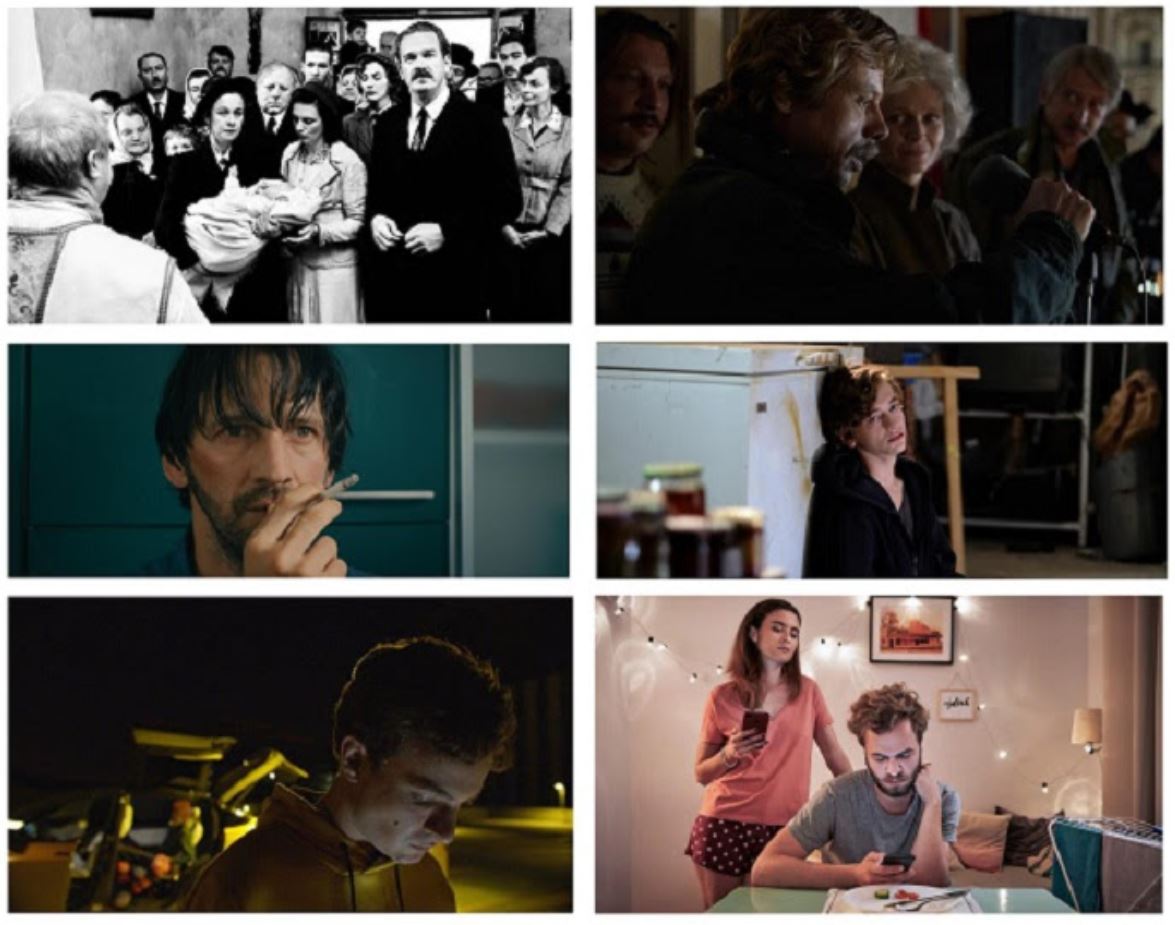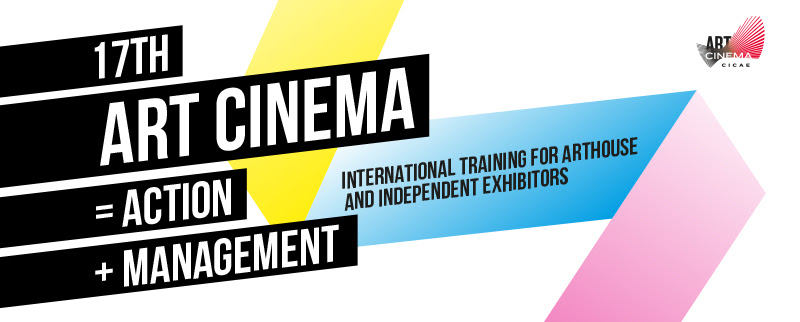This conviction also drove him to be particularly committed to cultural diversity and the preservation of the private cultural infrastructure. The topics of the discussion were both the everyday challenges and the promotion of cinemas as well as future issues such as film education. The need for internationalisation, cooperation and professionalisation was also a topic. The topics discussed included changes in audience behaviour, the increasing concentration of market power, the need for greater diversity in the film industry and increasing the appreciation of cinema and film. The Black Lives Matters Movement and necessary changes to combat racism and discrimination were also addressed.
One of the focal points of the meeting was of course the current crisis. Both Christian Bräuer and Andreas Dresen described the effects of the crisis on the entire film industry.
The President sent an impressive signal of support for culture and cinemas:
"In the last more than ten weeks we may not have had to do without films, but we have had to do without cinema. And perhaps many in the country have realised that the couch at home cannot replace the cinema. Perhaps it has also become clear, more than ever, that cinema is culture. We need culture, because culture enables us to investigate a world that we cannot fully open up through information alone. Cinema is also emotion, creates diversity and empathy, all of which is indispensable, even for a living democracy.”
The visit is a recognition of the work being done in arthouse cinemas and an important sign that politics is committed to culture and creative industries.
A report about the visit and the impressive statement for culture and cinemas can also be found on the homepage of the German President www.bundespraesident.de and on his social media accounts @bundespraesident.steinmeier.
 From left to right: Andreas Dresen, Elke Büdenbender, Frank-Walter Steinmeier and Christian Bräuer
From left to right: Andreas Dresen, Elke Büdenbender, Frank-Walter Steinmeier and Christian Bräuer
Early payment and increase of funding by Europa Cinemas
In recent weeks, the CICAE has been campaigning for the payment of Europa Cinemas funding, which is usually paid out at the end of the year, to be transferred earlier and increased.
Giuseppe Abbamonte and Lucia Recalde, the heads of the Creative Europe/MEDIA programme reacted quickly to this. The payment is now scheduled to be made in June. The funding will also be increased by 50%.
Christian Bräuer is in close contact with Claude-Éric Poiroux and Fatima Djoumer about the payments.
The strengthening of international cooperation is one of the main objectives of CICAE.
Support for cinemas during the pandemic
The CICAE also points out the impact on cinemas of the measures to contain the corona pandemic. At a conference of the stakeholders of the MEDIA programme, Christian Bräuer explained the consequences for art house cinemas. He is also in contact with Members of the European Parliament on this issue.
Black Lives Matter
Our societies are facing a time of raising awareness with regards to the racial and social inequalities that have poisoned democracy and history. The Black Lives Matter movement sets a sign and asks all of us to listen and learn about black history and that of people of colour, to rethink identity and show solidarity in order to rebuild the communities we live in to make them just, equitable and representative for all its members.
Arthouse cinemas have a mission to showcase and speak up for diversity in all its forms, helping to heal wounds of the past and contributing to the democratic discourse and supporting the renewal that we are witnessing.


The marquees of the Neues Off cinema in Berlin and the Loft Cinema in Tucson, Arizona, supporting the Black Lives Matter movement.
INSIDE CICAE
17th "Art Cinema = Action + Management" training application period closed
The application period for the 17th Art Cinema = Action + Management is closed. CICAE is analysing all the submissions received and is preparing for Venice.
The training programme, taking place from August 31 to September 6, will have this year a special focus on the effect that a crisis, such a pandemic, have on the cinema exhibition and what solutions can be applied to face such a challenging time. The workshop on how to (re)start a cinema is one of the key points of ACAM programme, and this year it will cover an important role also in the perspective of regaining the audience trust in the cinema-going experience.
We are in touch with the staff of San Servolo Servizi, host venue of the training programme, who ensured us the feasibility of the course. The campus island is equipped and ready to host guests in its facilities, with COVID-19 safety measures, providing the reception and other common spaces with hand-disinfectant, and assuring extra cleaning for linings, and towels.
In addition, the Venice Film Festival has confirmed its dates (2-12 September). CICAE is collaborating once again with the Venice Production Bridge to bring the training programme within the framework of the Venice Film Market, with a round table open to the all the film professional guests of the festival.
Back to cinema: the social campaign to fuel the audience's need for cinema
The International Confederation of Arthouse Cinemas (CICAE), in collaboration with the German initiative, #ZurückInsKino, has started an international social media campaign under the name #BackToCinema.
The action consists of some motifs created specifically to be used on Facebook profile images and other social media, containing the phrase "Back to Cinema", not only in English but also in several other languages.
With this campaign, on one hand, we would like to raise awareness among the international audience on the importance that cinema theatres have for our community and life; on the other hand, we would like this action to be a way to involve the audience in the action and fuel the desire of people to return to the cinema, when time will allow.
How does Back to Cinema work? Everyone can join by making use of the visuals and links to the frames available on: http://cicae.org/en/coronavirus/back-to-cinema
Thanks to the collaboration between CICAE members, the national arthouse cinemas organisations, film institutes and independent cinemas, the network gathered already 20 different languages. #BacktoCinema is available in: Arabic, Bulgarian, Catalan, Czech, English, Farsi, Finnish, French, German, Greek, Hungarian, Italian, Macedonian, Polish, Portuguese, Romanian, Serbian, Slovak, Slovenian and Spanish.
Further languages will be added, also upon request.




5th European Arthouse Cinema Day: let's go back to cinemas and celebrate them
We believe that this year, more than ever, arthouse cinemas should be celebrated, for the important role they cover in bringing together communities and in offering a programme of quality that aims at showing good films while promoting values of integration, cultural diversity and social equality.
The first part of 2020 has been dramatic for our societies and cinema theatres have suffered extremely because of the forced closure due to the pandemic.
Our venues can be the places of reconstruction, bringing the attention back to community and European films and the European Arthouse Cinema Day shall put cinemas in the limelight.
We are currently working on new ideas, collaborations and partnerships and will announce within the next weeks all the developments in the organisation of the 5th EACD.
Save the date: 8 November 2020.
Registration will open soon.

COVID-19 UPDATES
Reopening cinemas: first impressions, countries reopening dates and strategies
Cinemas across the world have slowly started reopening. Austria, Bulgaria, Bosnia and Herzegovina, Croatia, Cyprus, Czech Republic, Denmark, Latvia, Lithuania, Germany, Norway, Slovakia, Slovenia, Spain are some of the countries which allowed cinemas to reopen already starting in May.
However, not all cinemas decided to open immediately as they are encountering also some difficulties: lack of films distributed, strict safety protocols and guidelines given by local and national authorities, distrust of the audience who might be afraid to go back to public indoor spaces, are some of the reasons why exhibitors have decided to postpone of some weeks their reopening date.
We have additionally collected some useful resources related to the reopening strategies, that you can find on our website, and which could come to hand.
Curious to know what it feels like to go back to the cinema after months of closure, we have asked some of our members to give us their feedback on the reopening experience.
Here you can read about the first screenings in May in Splendid Palace in Riga, Latvia, the Cinema Zlatna Vrata in Split, Croatia, Kino Samobor in Samobor, Croatia, Kino Valli in Pula, Croatia, and Kinodvor in Ljubljana, Slovenia.





















